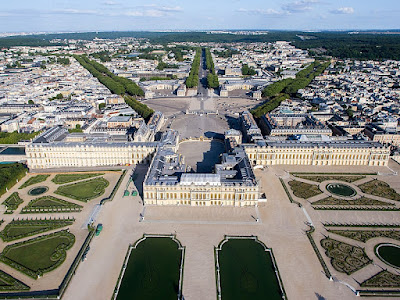"While the Wall is the most obvious and vivid demonstration of the failures of the Communist system - for all the world to see - we take no satisfaction in it; for it is, as your mayor [of West Berlin] has said, an offense not only against history but an offense against humanity, separating families, dividing husbands and wives and brothers and sisters, and dividing a people who wish to be joined together."
- American president John F. Kennedy, in his "Ich bin ein Berliner" speech (June 26, 1963)
World War II had just ended; but for parts of Eastern Europe, the nightmare was just beginning ...
During the
Second World War, Eastern Europe was unfortunately caught in the crossfire between
Hitler's
Nazi Germany and
Stalin's
Soviet Russia. Conquest by either one meant certain tyranny and subjugation, but to be caught on the losing side of this struggle for the
Eastern Front would mark one's country for revenge, terrible and swift. It was not known yet who would be the winner, and the two sides were so ruthless to begin with that any additional punishment from the eventual victor was a terrifying prospect for them. Perhaps partially for this, the nations of
Eastern Europe decided to choose sides in this struggle, hoping to promote their interest; and some paid a heavy price for making the wrong choices in these matters. But all were doomed to suffer in one way or another, and even the ones whose alliances had actually served their interest in these years were condemned to suffer in a communist occupation later on, regardless of which side they had served at this earlier time. The eventual winner on the
"Eastern Front" was, of course,
Soviet Russia; and it imposed its will without any mercy on the nations that it had conquered.
Red Army raises Soviet flag in Berlin after taking the city, May 1945
Some parts of Eastern Europe were already occupied before World War II
To be clear, some of these nations were already conquered before the war started, and some had been part of the
"Union of Soviet Socialist Republics" (or
"USSR") since the moment of its creation in 1922. (This is the political entity that is better known today - and was known then - as the
"Soviet Union.") They were thus already puppet states that had been annexed by the USSR. Others became puppet states that were made part of the Soviet Union in 1940 - after
World War II had begun in
Europe, but before the
Soviet entry into the war in 1941. These states were annexed at this time instead. Others became puppet states much later on in the war - or even after, in some cases. Although some of these states were never actually annexed into the Soviet Union - possibly to create the illusion that the
Russians were actually keeping their
World War II treaty promises of non-interference - they were nonetheless controlled from
Moscow as much as any of the others. These included
Bulgaria,
Czechoslovakia,
East Germany,
Hungary,
Poland, and
Romania - and, for a brief time,
Yugoslavia and
Albania. (More on the special status of these two nations later in this post.) Together with the Soviet states, these nations were all then part of what was called the
"Eastern Bloc." For these nations, the ordeal of Soviet occupation began during - and in some cases, after -
World War II, and the long nightmare of "no peace" would be followed by the even longer nightmare of
no freedom. It is these nations that I will focus on here, since their distance from the center of Soviet power encouraged them to attempt more revolts against the communist occupation - revolts that (unfortunately), before
1989, did not succeed.
Border changes in the Eastern Bloc, from 1938 to 1948






































